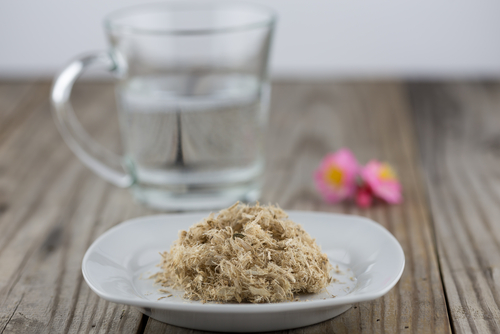
Acid reflux, or gastroesophageal reflux disease, is a very common health problem wherein stomach contents rise up into the esophagus, resulting in either symptoms or complications. It is caused by too little acid in the stomach.
Common Acid Reflux Symptoms
- taste of acid in the back of the mouth
- heartburn
- bad breath
- chest pain
- vomiting
- breathing problems
- wearing away of the teeth
Home Acid Reflux Treatments or Remedies
Raw, unfiltered apple cider vinegar
Take one tablespoon of raw unfiltered apple cider vinegar in a large glass of water.
Baking soda
Baking soda can help to neutralise the stomach. One to one and a half teaspoon of baking soda in a large glass of water may ease the burn of acid reflux. This treatment should only be used in times of extreme pain and not on a regular basis.
Ginger root or chamomile tea
Ginger has been found to have a gastroprotective effect by blocking acid and suppressing helicobacter pylori. According to a 2007 study, it can be used for preventing the formation of ulcers. Ginger root has been traditionally used against gastric disturbances since ancient times. Add two or three slices of fresh ginger root to two cups of hot water. Let steep for about half an hour. Drink about 20 minutes or so before your meal.Before bed, try a cup of chamomile tea, which can help soothe stomach inflammation and help you sleep.
Slippery elm

Slippery elm coats and soothes the mouth, throat, stomach, and intestines, and contains antioxidants that can help address inflammatory bowel conditions. It helps to increase mucous secretion which can protect your gastrointestinal tract against ulcers and excess acidity by stimulation nerve endings.
The University of Maryland Medical Center makes the following adult dosing recommendations:
Tea - Pour 2 cups boiling water over 4 g (roughly 2 tablespoons) of powdered bark, then steep for 3 - 5 minutes. Drink 3 times per day.
Tincture - 5 mL 3 times per day.Capsules: 400 - 500 mg 3 - 4 times daily for 4 - 8 weeks. Take with a full glass of water.
Glutamine
Research published in 2009 found that gastrointestinal damage caused by H. pylori can be addressed with the amino acid glutamine. It can be found in many foods, including beef, chicken, fish, eggs, dairy products, and some fruits and vegetables. L-glutamine, the biologically active isomer of glutamine, is also widely available as a supplement.
Folate or folic acid (vitamin B9)
Higher folic acid intake was found to reduce acid reflux by approximately 40 percent. The best way to raise your folate levels is by eating folate-rich whole foods, such as liver, asparagus, spinach, okra, and beans.
|
Do you have a natural health & wellness business? |









